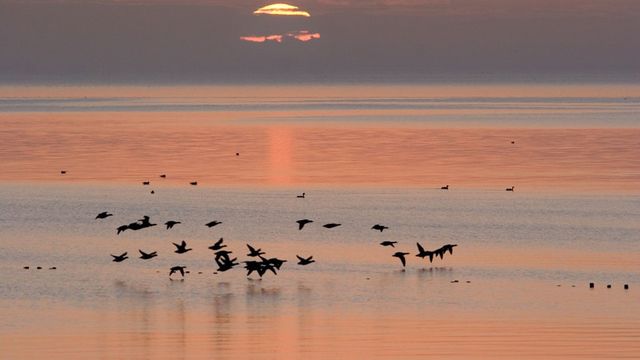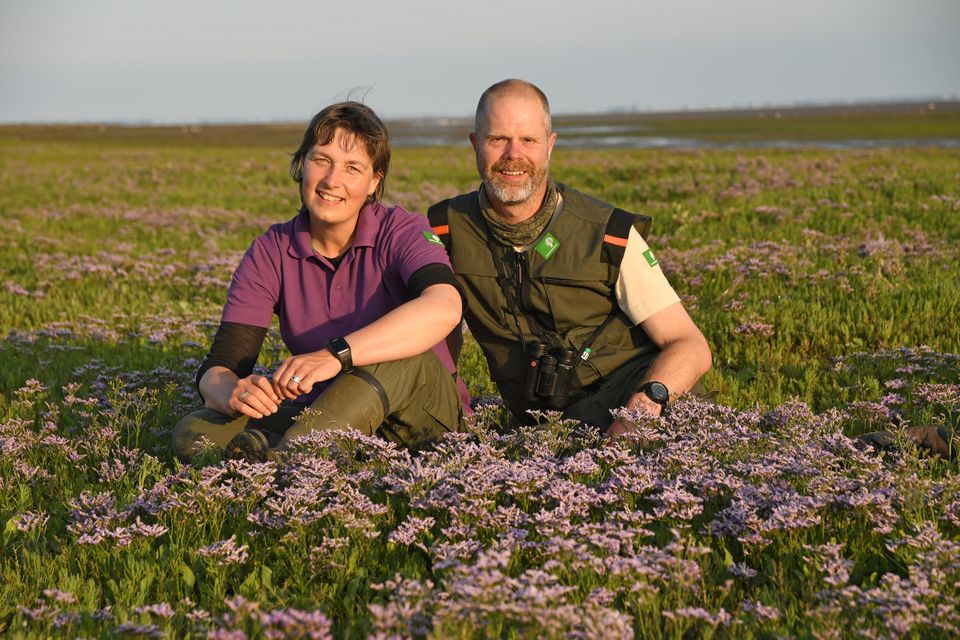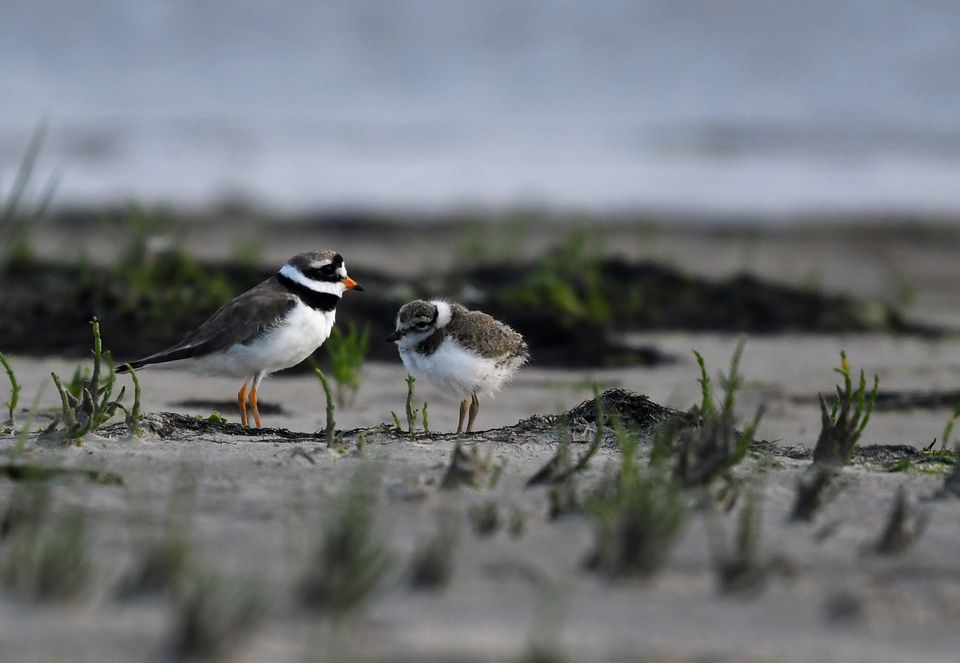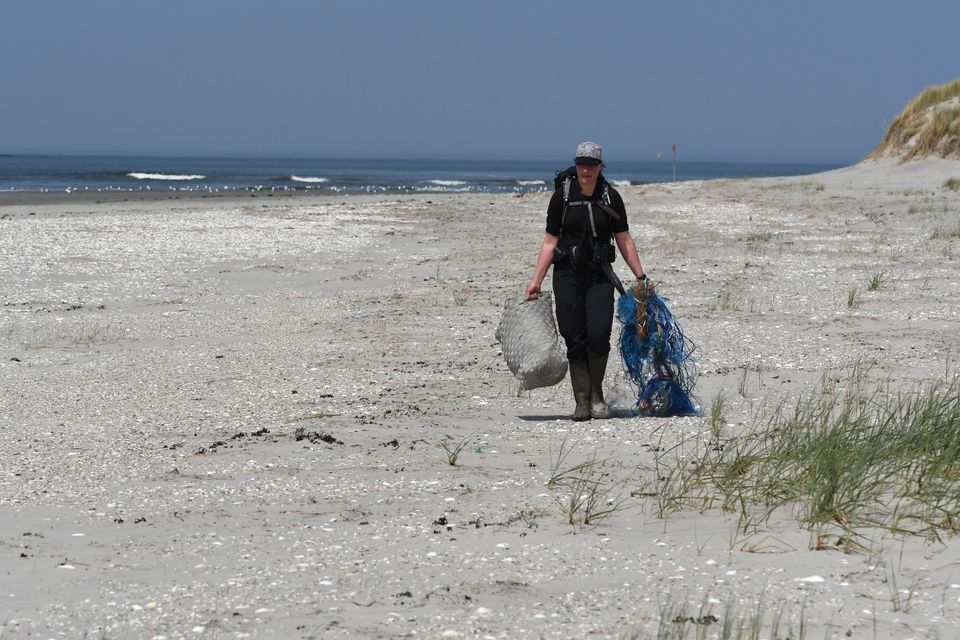"In this bit of the Netherlands, nature comes before humans."
The Rottums are the least known of the Wadden islands. Those who love the Wadden would be thrilled to explore these islands, but they are closed to visitors. In this bit of the Netherlands, nature comes before humans. Last summer, bird rangers Aaldrik Pot and Nicolette Branderhorst stayed on Rottumerplaat for four months. Read their story here.
They are real outdoor people. They were thinking about a way to immerse themselves in nature for a longer period of time when the bird rangers’ request came from Aaldrik’s employer Staatsbosbeheer, the Dutch Forestry and Nature Commission. They were keen and both managed to make the necessary arrangements at work. At the end of March, the Harder, the inspection vessel of the Ministry of Agriculture, Nature and Food Quality, dropped off Aaldrik and Nicolette and supplies for two weeks on the loose sand of Rottumerplaat. It was going to be four months of hard work.
Their task? Report disruptions by planes, clean up rubbish, inform and send away unwanted visitors, but above all count and monitor birds and plants right to the furthest reaches of the salt marshes or the beach. Ideally at low tide, during the hours those places are accessible and most birds are foraging on the mud flats.
Aaldrik is using words like ‘unbelievable’ and ‘magical’ to express how the enormous numbers of birds affected them. “Around the middle of July, the first dunlins were back from their breeding grounds, about a dozen of them. The next day it was a hundred, and thousands the day after that. On the look-out they were flying right before our eyes, like a swarm of starlings. When the light fell on their breasts and bellies, they looked like diamonds, other times their red-brown wings glistened like copper in the sun.”
Nicolette said “It was so beautiful. At those moments, and there were many, we were just mesmerised and needed to pinch each other. ‘Come on, we need to count!’.”
This massive presence of migrating and breeding birds is down to the undisturbed peace, said Aaldrik. “There are no land predators that move birds from the nests and human interference is limited. Apart from us then?” He says it with a smile, but both bird rangers experienced this as a daily dilemma. “Simply being there makes you a disturbance, yet it is really important. Monitoring how the birds are doing and protecting the island. If more people started to arrive, that would spell the end of the peace those birds need.”
Nicolette emphasised that they had one more role in writing their weekly blog. “We were also on the ‘Plaat’ to show people who cannot access the island how special this vulnerable area is and how important it is that it stays out of bounds. Remember, this is one of the very few places in the Netherlands were nature comes before humans.”
In their blogs they shared their euphoria about nature, but also their concerns. About that mass of plastic that comes onto the beach with every high tide - “there literally is no end to it.” About the future of the birds. Aaldrik said “Will the mud flats where they feed still fall dry with rising sea levels? Are summer storms increasing to such an extent that all the hatchlings in the salt marshes wash away? I really worry about that. Not about the future of the islands. Over those four months we could see that Rottumerplaat is losing ground on the west side, but it is growing just as fast on the east side. The Rottums will remain.”
-
Read the blog
Read the blog
If you would like to know more about these unusual Wadden islands, you can read more about their creation, nature, history and the people who make sure that nature can simply be nature. You can read Aaldrik and Nicolette's blog here.
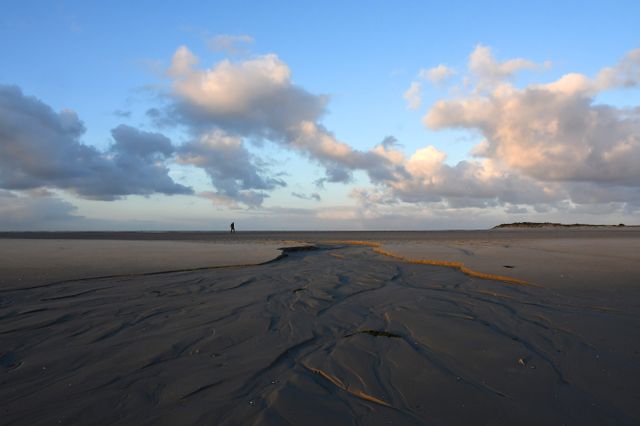
-
More about world heritage
More about world heritage
